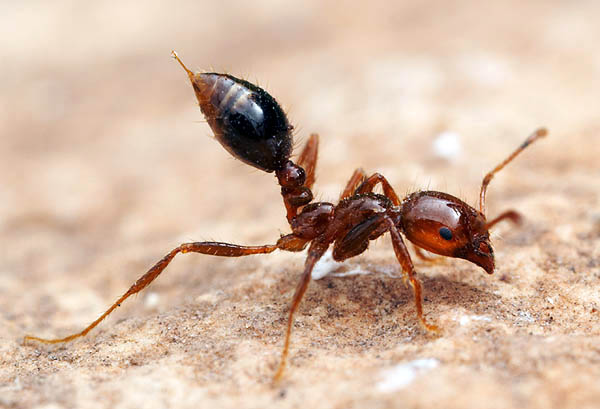Fire ant “supergene” controls social behavior
Ars Technica » Scientific Method 2013-01-18

When invasive fire ants (Solenopsis invicta) were first discovered in the United States, scientists observed that their colonies each had a single queen, and that the ants were extremely aggressive toward individuals that immigrated from other colonies. However, they soon found that certain S. invicta colonies have multiple queens and even tend to adopt queens from other colonies. It turned out that different forms of a single gene, called Gp-9, determine a particular colony’s social system.
Now, scientists studying this gene have found that Gp-9 is part of a “supergene” that controls a large suite of traits related to sociality, and the chromosomes carrying this supergene behave a lot like sex chromosomes. Their research was published this week in Nature.
The Gp-9 gene determines whether S. invicta colonies will accept one queen or more; colonies composed of ants that are homozygous for one form of this gene will tolerate only one queen, while colonies that include heterozygous ants will tolerate multiple matriarchs. Gp-9 codes for an oderant-binding protein; these proteins specialize in helping pheromones and other odor molecules get from the environment to an animal’s olfactory receptors. It is likely, therefore, that chemical communication regulates the number of queens that are accepted into a colony.
Read 8 remaining paragraphs | Comments